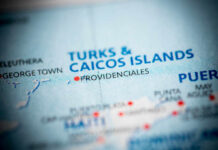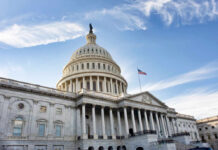
In a scenario reminiscent of tactics employed by dictators of nations hostile to democracy and fundamental freedoms, Boston’s first female and first Asian-American Mayor, Michelle Wu, finds herself at the heart of controversy. Her administration is being scrutinized for supplying a list of her most vehement critics to the Boston Police Department.
The revelation came to light when a group opposing Mayor Wu uncovered the document through a public records request. According to Ricardo Patron, Wu’s spokesman, the controversial list was a response to a police request after months of harassment and physical intimidation aimed at Wu.
Under fire? Is Stalin the mayor of Boston? Is Boston police the new Stasi? Arrest this tyrannical harpy. https://t.co/CrRu0sbSfv
— The Dank Knight 🦇 (@capeandcowell) July 16, 2023
Public outcry has erupted, with critics accusing Wu of suppressing freedom of speech and intimidating dissenters. The concerns of the mayor’s critics are understandable, considering the listed individuals have actively voiced their opposition to Wu’s policies, even going as far as staging protests outside her home.
The list contained 15 names, including city council candidate Catherine Vitale, several anti-vaccine protesters, and local restaurant owners opposing Wu’s policies. Other names on the list, like “the Mendoza Brothers from the North End” and “A woman with the last name of Thuy who was arrested before,” were added without explaining their inclusion.
Wu’s administration defended the measure, citing it as necessary for Wu’s safety. A series of incidents had prompted police to seek out a list of potential disruptors. “The request from police came after many of the individuals on the list repeatedly impeded the Dorchester Day Parade to harass Mayor Wu and her family and staff,” Patron stated. He further explained that this list was promptly compiled after a meeting between Boston Police and city staff to plan for a safe Bunker Hill Day Parade.
Despite the administration’s justifications, the perceived heavy-handedness of Wu’s actions has sparked a fierce debate around the delicate balance between public safety and individual freedoms. Last year, Wu provoked criticism by passing an ordinance restricting protests outside her home during certain hours. This latest move, however, has led some to question whether she’s overstepping her boundaries.
It remains unclear how the Boston Police responded upon receiving this list of “public disruptors.” No further light has been shed on whether the police used this information to monitor or suppress the activities of those named proactively.
In a democratic society, citizens must be free to voice their opposition and protest government decisions. While public officials are entitled to security and peace, a line is crossed when steps toward that security appear to infringe upon individual freedoms. With her recent actions, Mayor Wu seems to have veered uncomfortably close to, or over, this line.













